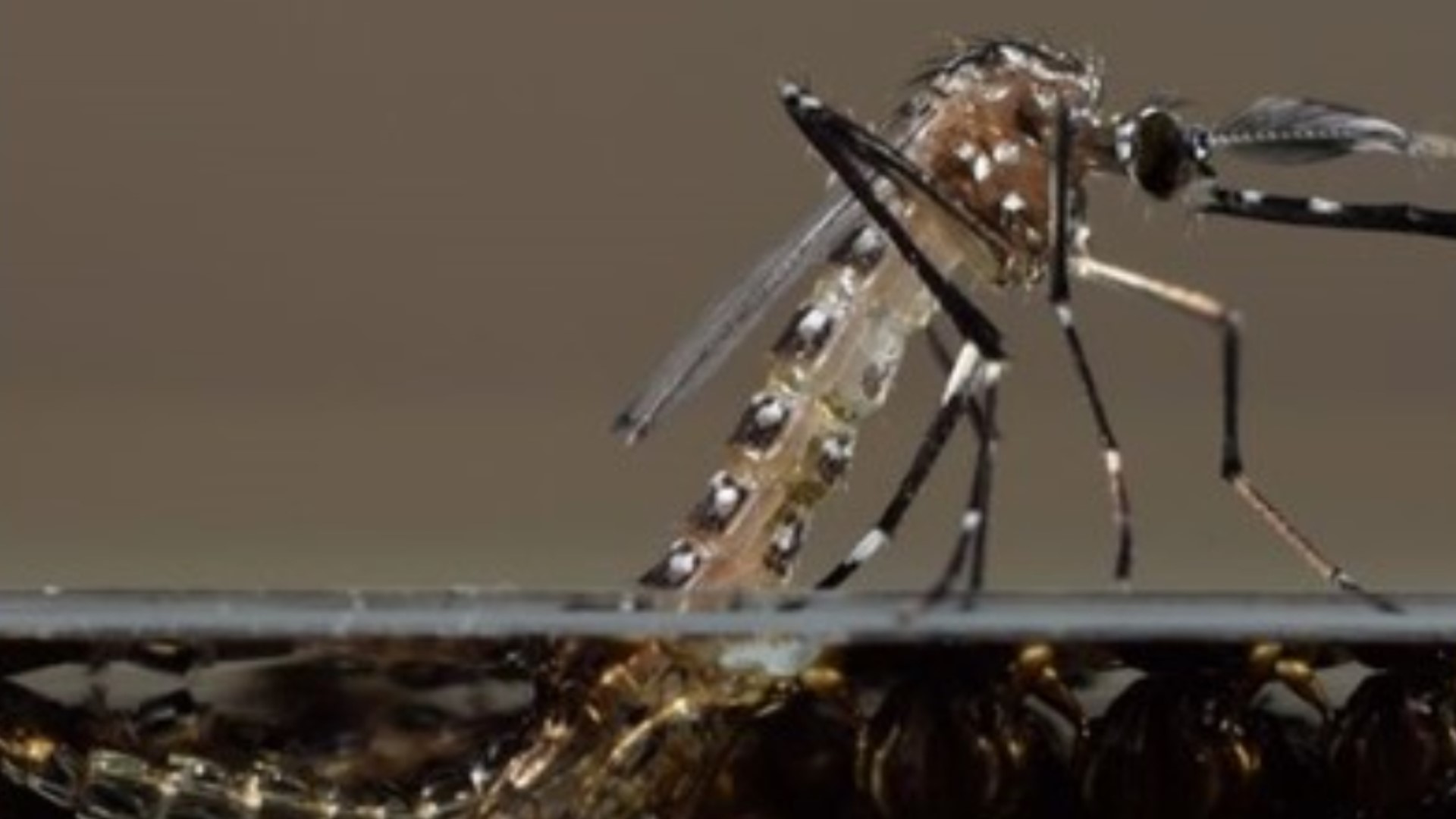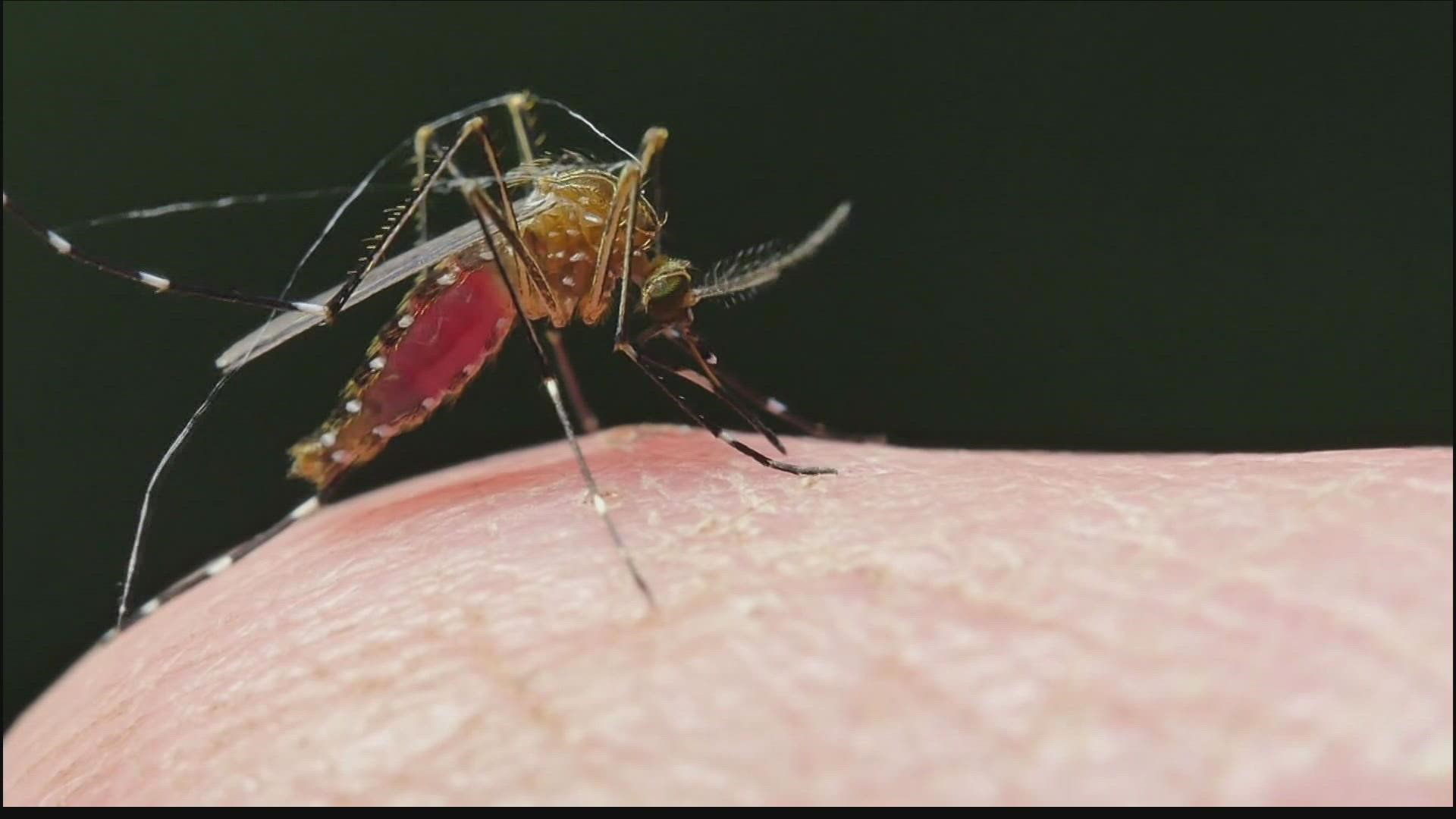Millions of genetically modified mosquitoes could be released in Florida this year
The EPA has approved extending a pilot program for two more years that would allow millions of genetically modified mosquitoes to be released in the Florida Keys.

They’re created in a lab with the goal of suppressing mosquitoes that transmit diseases. That's according to Oxitec, the U.K.-based biotechnology company developing them.
“Aedes aegypti is the most important global vector of dengue, which is a devastating virus, Chikungunya, and Zika virus,” said Rajeev Vaidyanathan, Director of U.S. Programs at Oxitec.
He says the common name is the yellow fever mosquito, and it continues to be an important vector of yellow fever virus in South America and in Africa
Since 2021, millions of genetically modified male Aedes aegypti mosquitoes have been strategically released in Monroe County as part of the Oxitec Mosquito Project in the Florida Keys. In March, the EPA approved the release of 2.4 billion more in Monroe County and California over the next two years under an experimental use permit. They are designed to kill biting females before they mature.
“The male mosquitoes, they don't bite," said Chad Huff with the Florida Keys Mosquito Control District. "They never take a blood meal from a human at all. They survive on nectar. They don't even have the mouth parts that make it able to take blood. It's really just using the instinctive knowledge of the male mosquito and finding a female, and then limiting the number of offspring that those females are able to have.”
How does it work? Experts say releasing more could provide much-needed data
The Florida Keys Mosquito Control District has been working with Oxitec to test out the genetically engineered mosquitoes in the field.
“It's kind of a just add water scenario,” Huff said.
Technicians place the eggs in a box with water and food on properties where they have gotten consent from the owners and Mother Nature does the rest.
“The male mosquitoes basically go through their life cycle they emerge and then they fly away and then they go do their thing,” Huff said.
They can then be identified in the wild, in part by a fluorescent marker gene that glows under a special red light. Huff says releasing more will provide researchers will more data future trials will focus on like suppressing mosquito populations.
Oxitec says it released less than five million of the non-biting mosquitoes in the Florida Keys in 2021 and collected more than 20,000 eggs from the field to be brought back to the lab study.
“Every single fluorescent larva when it emerged as an adult was a male mosquito, and so we have evidence that we did not detect any female mosquitoes,” Vaidyanathan said. “Our goal last year was not to wipe out. It really was to get those basic metrics.”
“It was basically to see, with those mosquitoes, would they emerge from their boxes, which they did. And were they able to successfully mate with the local Aedes aegypti female population, which they did. Would all their offspring be males, which they were. And would they fly? Would they actually release from their boxes and only go a short distance? And the answer was yes. They only flew a few 100 feet.”
As Oxitec now awaits regulatory approval from the Florida Department of Agriculture and Consumer Services to continue its trials for two more years, the Florida Mosquito Control District says it already has a waiting list for people who want to have the mosquito boxes on their property.
“They see the merit in this and are excited to be on the cutting edge of a technique that in a few years could be everywhere,” Huff said.
Oxitec says its mosquitoes are safe, and the EPA determined there is no risk to people, animals, or the environment.
“They're nontoxic, non-allergenic and we have a strong track record of proving this to be effective in Brazil, and we saw strong results in Florida in the field last year as well,” Nathan Rose, Oxitec’s Head of Regulatory Affairs said in a webinar to educate the public.
Once they stop releasing them, Oxitec says the genetically engineered mosquitoes disappear in the wild within months.
“As far as making a super mosquito or crossbreeding, mosquitoes don't do that. And basically, the chance of that happening is eliminated when it's just a male that is being released,” Huff said.
Unintended consequences? Some question potential environmental and public health impacts
But not everyone supports extending and expanding this pilot program.
“When they release these things, what do you think is going to eat these mosquitoes? Dragonflies and fish and birds, endangered species, so we are just shocked that they were able to do this,” Ed Russo said.
Russo, president of the Florida Keys Environmental Coalition, has lived in the Keys for more than twenty years. He says his biggest fear is unintended consequences.
“They haven't proven a reduction in disease anywhere. And you think that the EPA would have called them on it? No, they haven't. You think our state government would call them out on it. Well, the state hasn't given their approval yet. We expect a decision over the next couple of weeks. Hopefully, the state of Florida will ask these questions,” Russo said. “Show us an independent study that supports the big claims of Oxitec. That's what we've been asking all along.”
Dana Perls with Friends of the Earth says too much information is being kept behind closed doors.
“Part of the problem is that although Oxitec has said that there are no risks, Oxitec still hasn't released key data from the Florida trials, or even its own data from the labs. In fact, there are still no independent reviews anywhere for this version of the mosquito available for public review. So, we are being asked to take Oxitec's word that there are no risks without any proof or data.”
Her group is concerned about potential public health and environmental impacts.
"Even though the EPA cited this as safe, the data remains incomplete. And the science remains insufficient. We need to move slowly, particularly at a time where ecosystems are undergoing very dangerous changes due to climate change and biodiversity loss. Because there isn't a big Dengue problem or Zika problem in Florida or in California, there is an opportunity to move slowly, there's an opportunity to do our best and to make sure that we're actually prioritizing the environment and people's health ahead of corporate profit."
Oxitec says its results have been submitted to the Environmental Protection Agency, the Florida Department of Agriculture and Consumer Services, and to the California Department of Pesticide Regulation.
“We really finished the trials about last week, because we still had to collect and detect fluorescence in larvae. So, anyone who criticizes clearly does not understand the scientific review process,” Vaidyanathan said. “We have to collect those data first, we have to analyze them, and we are obligated to submit them to federal and state regulatory agencies first, and then in parallel, we can then submit it for independent review as a manuscript. So that could take a while.”
In extending the experimental use permit for two more years, the EPA said Oxitec has not reported any adverse effects from the field tests that have been conducted in Florida since April 2021.
Here's the buzz “Because this is still in testing, it will be years before it's even a question in Jacksonville ..."
Huff says with the Aedes aegypti mosquito becoming resistant to pesticides, he's hopeful this will be a new tool in the toolbox.
“We have to say the jury's still out. You know, we haven't really tested it to see what the suppression value is on these particular mosquitoes in the Florida Keys. But so far, so good. You know, I would say we're cautiously optimistic,” Huff said. “We have a very forward-thinking mosquito control organization that's looking towards the future and saying, we're not going to be caught looking. We're going to make sure that we have something available to control this dangerous mosquito. And that's what we're doing.”
Oxitec hopes to start releasing more mosquitoes this Spring, but has to wait for the state of Florida to sign off on it.
As for when genetically modified mosquitoes could potentially be used in Jacksonville, the city says not any time soon.
“We're paying attention to it. If we were to do it, it would be in response to a like locally transmitted dengue,” said Benjamin Thomas Allen, Entomologist Supervisor with the city of Jacksonville's Mosquito Control Division. “Because this is still in testing, it will be years before it's even a question in Jacksonville at all, whether we use it. It's not the sort of thing that we would consider doing until it's approved, and that's going to take a long time.”


